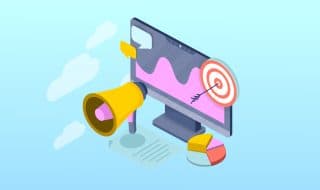When to Hire vs Train Your In-House Content Team

Every business will eventually reach a point where its marketing needs exceed its current capability. Small businesses, the kind where the owner does a lot of the work, or where they have one or two do-it-all employees, often run into this when the need for more overarching strategies and detailed work arises. Larger businesses run into it with scale, and the need to jump from growth hack strategies to more broad-spectrum, enterprise-grade efforts.
In all of these cases, a decision point is reached.
Do you train your current team to better suit your needs, do you hire new people to augment your team and bring in new skills, or do you hire an external team to do the work for you?
There's no right answer here, so it's important to weigh the options to pick the one that works best for you.
The Pros and Cons of Training Your Team
The first of the three options you have available to you is training your existing team to better suit your needs.
This might involve some restructuring. If your team is used to working, well, as a team, you may need to appoint someone to have overall control over the marketing, making them more of a manager, strategist, or director. Building more of a structure to the team is a hurdle many businesses need to overcome, eventually.
There are definitely some real benefits to keeping your team as-is and upskilling them.
It builds more loyalty to your brand. A significant drawback to hiring an agency to come in and replace your team is that, even if you keep those employees around, they'll feel like they've been replaced and may look to jump ship. Upskilling them, on the other hand, makes them feel like they're being valued and that you're investing in them, which in turn helps them stick around.
It's important to reward these employees, though. If you're increasing their skills – and probably their workload – you also want to increase their pay. Otherwise, it just feels oppressive, and they may leave regardless.
It maintains the deep familiarity your team has with your business. The employees you currently have know a lot about the history, values, direction, and viewpoints of your brand. The content they create is already deeply infused with your style and voice, likely because they helped create that voice in the first place. Keeping the team around, even if you restructure and reformat it, maintains that familiarity.
It builds a strong foundation to expand upon. The thing about in-house teams is that they can be grown and scaled alongside your business, often in ways that are more effective and more granular than what you get with an agency. Agencies tend to have per-post or other fees that, while they can scale, don't give you the same bang for your buck. On the other hand, scaling up your in-house team with a new employee or two can be a much more cost-effective method, over time.

This is not to say that there aren't downsides here.
Your team may not be able to handle your new vision. Whether it's resistance from employees who want to stay with the way they've always done things, or the lack of an overall vision to guide the team, or simply capacity issues, it can be difficult to surmount these challenges with upskilling and restructuring. You'll need to augment the team, sooner or later, whether that means picking up freelancers, hiring new employees, or teaming up with an agency to handle some of the burden.
Upskilling isn't guaranteed to be effective. When you hire someone new to come in, whether it's an individual to take over the team, a few skilled workers to supplement it, or an agency to replace it, you can evaluate their track record before the buy-in. With upskilling, you need to invest in your employees and hope they have the returns you want them to have, which isn't always going to be the case.
Some skills can only be gained with experience. It's a great plan to invest in your team, but some skills require practice to develop, and if you're trying to push to meet growth milestones, it can be difficult to meet those deadlines. People are going to make mistakes, and even just building the intuition to be able to predict how campaigns might work takes time to develop.
The Pros and Cons of Hiring New Employees
The second option is to augment your team.
Generally speaking, you can either hire people to join your staff, or you can take on freelancers and contractors to help offload some of the work. I'm covering both options here, since they work more or less the same way, just with a few different details.
You bring in external experts without replacing existing team members. In some cases, all you need to do to kick your marketing into overdrive is hire a strategist who can leverage your existing skills in more effective ways, and restructure your efforts to cut out the chaff. It can ruffle some feathers, but everyone will be better for it on the other side.
You maintain more direct control over your marketing. One of the greatest drawbacks of hiring an agency is the disconnect between your stakeholders and their teams. You have to go through multiple layers of communications to get your ideas across, and they don't always make the translation easily.
You can more rapidly adjust to changes in marketing trends. Whether it's the latest Google update, an industry trend you want to capitalize on, or special events you need to time, being able to respond and adjust with nimble grace is a huge benefit to having direct control over your teams. Again, that buffer layer of communications can get in the way and add significant delays.

What about the downsides?
If you hire someone who isn't a good fit, you end up back where you started. Say you hire a content strategist to come in and guide your content marketing operations. What happens if they don't have the right personality to fit in with your team, and cause so much friction that your marketing grinds to a halt? You have to either fix it (which might be impossible) or replace them, and you're back where you started. The hiring process needs to look at everything from skills to culture fit, especially for something as business-critical as marketing.
The initial investment of hiring someone is a lot higher than outsourcing. Hiring a new employee is expensive. Hiring a specialist can cost thousands of dollars before you even get to their salary, and that's before they start working. Some companies find this to be a tall ask, though ideally, you'll be able to swing an investment in your business future somehow; otherwise, how will you grow?
People, especially freelancers, come and go. While the ideal is to build a loyal team, people may have all sorts of reasons to leave the team. When you work with an agency, that's their problem, as long as the output you get is good. With an internal team, it's your problem to find and train replacements ASAP. Even freelancers can disappear at the drop of a hat for a million different reasons, and you have to find new ones who can fill the same role.
So, what about those agencies I've mentioned?
The Pros and Cons of Hiring an Agency
Outsourcing is a time-honored tradition for businesses, for very good reasons. Bringing on specialists without needing to actually hire them or tie them to your business can be very beneficial.
Agencies can leverage a ton of established skills and processes immediately. The ability to go from signing a contract to having top-tier content produced for you in a matter of days should never be underestimated. While yes, there can be a communication barrier and you can't be quite as agile with an agency as you can on your own, a good agency will already be watching trends and industry shifts, and can respond before you even realize there's something to respond to.
You'll probably have a more cost-effective marketing plan. While agencies can be expensive, the costs of setting up a team with the same skills, the same tools, the same expertise, the same resources, and all the rest can be quite extensive. Agencies are able to offer their services to you for a lower price because they're working with multiple clients and share the load for things like expensive agency tools. Agencies are also often quite flexible on scope and scale, and can adjust to suit your needs and budget.
You get the benefit of enterprise-grade tools and resources. A tool that costs $1,000 per month is a tall ask of an in-house content team that might not even really know how to make use of it, but an agency that uses that same tool across all of their clients means you get to access those benefits for a much lower price point.

What are the drawbacks to hiring an agency? I've already somewhat discussed them throughout this post.
The communication gap can be a barrier. If you're not used to working with an agency, it can be an adjustment. They aren't going to be as responsive as your team will be. For small businesses, especially, it can feel like a loss of control, and the more micromanage-style business owners can find that this chafes a lot and ruins business relationships.
The agency might not get your brand, voice, or tone right away. Often, agencies have their own style, and the content they produce can feel similar across their clients. If you have followers who pay attention to your overall tone and point of view, an abrupt shift can feel out of place. Usually, though, agencies are good at matching their content to their clients.
Finding the right agency can be tricky. There are a lot of content agencies out there, and a lot of them, frankly, kind of suck. Some of them are basically just fronts for a collective of freelancers that don't have overall guidance or strategy. Some of them are just whitelabel LLMs and aren't going to give you anything coherent. Some of them are incredibly good and incredibly expensive. Finding the right agency to work with can be even more time-consuming than finding employees.
Which Option is Best for You?
As the owner of a content marketing agency, you'd expect this is where I tell you that my services are the best.
Well, they are, but that's not the overall point I want to make here.
Every business has a unique situation with unique needs. Sometimes those needs are best solved by hiring a couple of freelancers to augment graphics work or provide first-draft content writing. Other times, a full-service agency taking over what was formerly some fairly mediocre content marketing is ideal.

I think a lot of businesses, especially businesses with very unique products or services, benefit a lot from in-house marketing teams. The direct association, first-hand experience, and employee buy-in can all be very valuable. But, it takes a specific kind of engagement from employees to do that properly, and a lot of brands think they have that, but don't.
On the other hand, I think agencies get a bit of a bad rap sometimes. Yeah, there are a lot of bad agencies, and a lot of agencies that will oversell themselves and under-serve their clients. And yeah, if you start looking for the agencies that work with companies in the Fortune 500, you're going to find expensive companies.
I like to think I'm in that Goldilocks zone with Content Powered here. So, why not give me a call? I promise I won't be overly pushy. I pride myself on having honest discussions with potential clients to discuss what I think they need, what I can provide, and a realistic discussion of what I can and can't offer. If you think that sounds like a good option, drop me a line and let's have a chat.










Comments